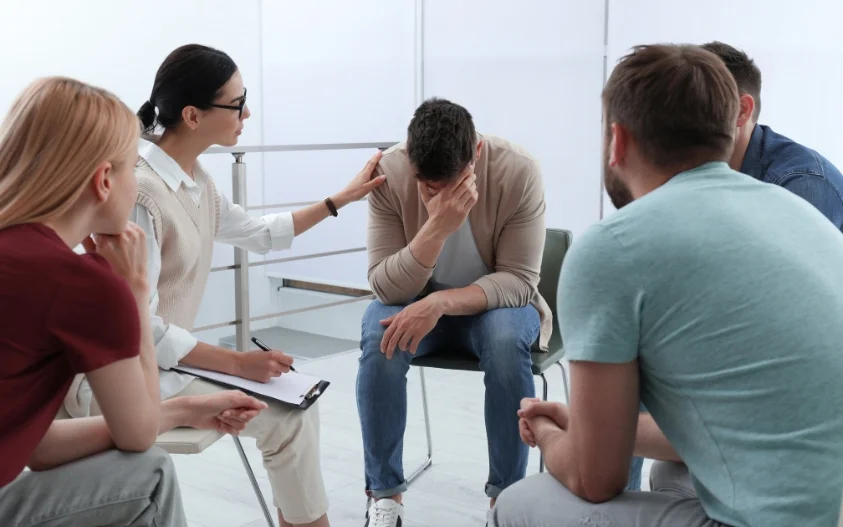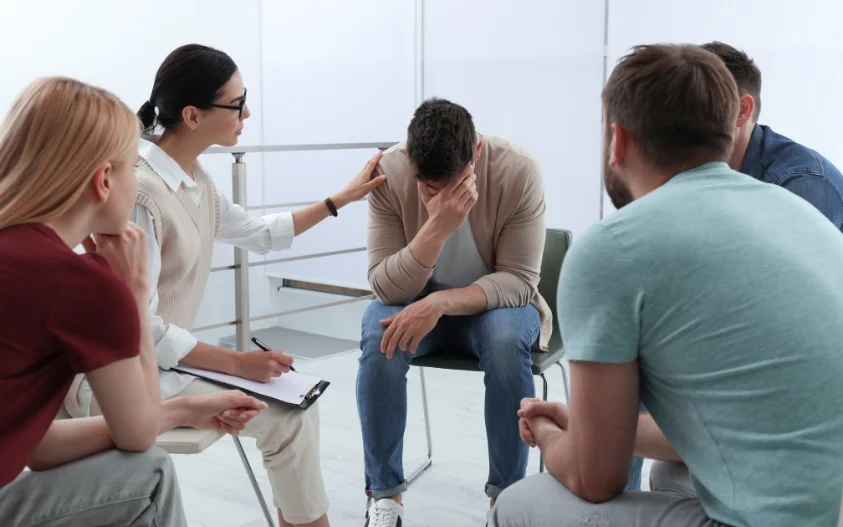24/7 Helpline:
(866) 899-221924/7 Helpline:
(866) 899-2219
Learn more about PTSD Treatment centers in Ragland
PTSD Treatment in Other Cities

Other Insurance Options

Magellan Health

Absolute Total Care

Optum

Health Choice

United Health Care

Evernorth

Molina Healthcare

Highmark

MVP Healthcare

Access to Recovery (ATR) Voucher

Providence

Horizon Healthcare Service

BlueCross

Medical Mutual of Ohio

Self-pay options

GEHA

Premera

Ambetter

Private insurance

Choice Care Network





































